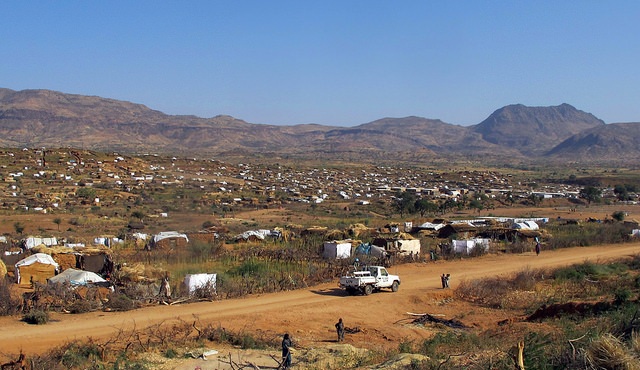No return of IDPs to their areas despite violence reduction in Darfur: UN official

November 18, 2017 (KHARTOUM) – An international official deplored that the decline of clashes with the rebels groups and inter-communal violence did not help to create a conducive environment for the return of displaced people to their area of origin.
“The armed groups in Darfur today had largely been defeated, the ferocity of inter-communal violence had declined, and there had been no new large-scale displacements, Bintou Keita,” Assistant Secretary-General for Peacekeeping Operations, told the Security Council on Thursday during a presentation of the UN Secretary General’s latest report on the African Union-United Nations Mission in Darfur (UNAMID)
“However, those positive developments had not led to the voluntary and sustainable return of internally displaced persons,” Keita further said, noting that nearly one-third of Darfur’s population remained displaced.
She pointed that the slow return of IDPs reflects anxiety about security and lack of confidence about present and future prospects due to slow progress in addressing such issues as land, poor resource management, accountability, and security sector reform.
According to the UN agencies, nearly one-third of Darfur’s population remained displaced. However, the number of displaced people has remained stable.
The 60-day report covering the period from 15 August to 15 October reported various attacks on the IDPs and farmers by the nomads and weak law enforcement and justice institutions.
“UNAMID was informed of 72 cases of human rights violations and abuses involving 253 victims, including 16 minors (15 girls and 1 boy) and 30 women, compared with 82 cases involving 124 victims, including 15 minors, during the previous reporting period,” reads the report.
” There were 27 cases of sexual and gender-based violence in the form of rape and attempted rape involving 31 victims, including 15 minors (all girls),” the UNAMID further reported.
Keita underscored the need to support longer-term peacebuilding activities, adding that UNAMID and the UN country team have finalized the integrated strategic framework for 2017 2019, which set out priorities on the rule of law and human rights, durable solutions, and peacebuilding for human security.
The Security Council decided last June to close 11 team sites and reduced numbers of military and police personnel deployed in western Sudan region of Darfur. But, a new site will be opened in Central Darfur state where a rebel group refuses to declare a unilateral cessation of hostilities.
The Assistant Secretary-General for Peacekeeping Operations said that the Jebel Marra Task Force is expected to become operational on 1 January 2018, but voiced regret that the allocation of land on which to open a new team site in Golo is still pending.
“Establishing that new team site will be essential to underpinning the concept of reconfiguring UNAMID, and goes hand in hand with the mission’s withdrawal from more stable parts of Darfur,” she explained.
(ST)
